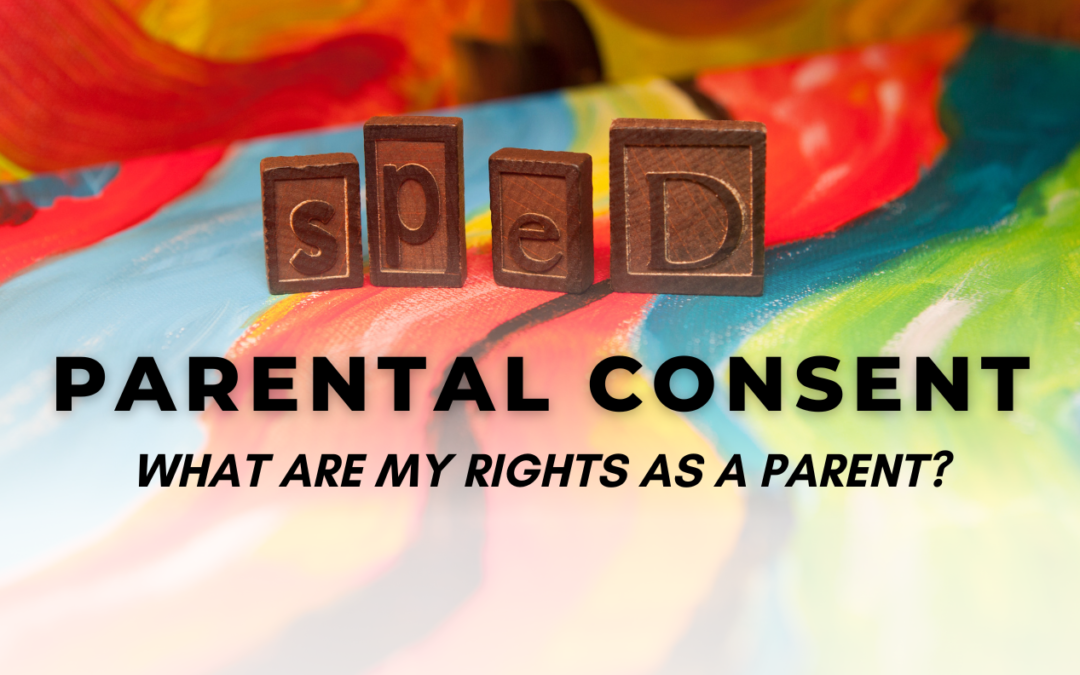When a parent first becomes aware of the possibility that their child might be a student in need of special education services, it can be very concerning and confusing. There are a few ways in which parents can be alerted to their child having special needs. Some parents are approached by an early education teacher, such as a pre-school teacher. This teacher might notice that the child is struggling with a speech and language deficit or is having difficulty with their fine motor skills. Later in a child’s education it might be an elementary school teacher who notices the student is having difficulty learning to read, write or do math. Concern can even come about much later in a child’s education, once a student is working with more than one educator during their school day. On occasion it is the parents who approach the school looking for assistance because their child is struggling in the classroom.
Regardless of the manner in which the concern comes about, it is important for parents to understand what their rights are within the special education system. The most important issue that parents need to keep in mind is that no matter who has raised concerns that their student might need special education services, nothing can proceed without parental consent. The law is very clear on this issue.
If a teacher or another educational provider recommends a child be evaluated for special education services, the evaluation process cannot move forward unless the school district obtains the parents’ consent. Even if the parents are the ones requesting an assessment, the school district still must get their consent to proceed with the actual assessment process. The only exception to this rule is if the school district has identified the student as one that might need special education services and, after reasonable efforts, cannot obtain consent from the parents.
Lastly, it is important to note that parental consent for a child to be evaluated for special education services, does not automatically create parental consent for the student to actually receive services. That consent must be obtained separately.
Once consent is obtained for the initial assessments, the parents then have the right to be informed regarding the outcome of the same. This information is usually shared with the parents during an initial IEP meeting where the parents will have the opportunity to hear from the teachers, school psychologists and service providers as to their respective findings. If, at this time, it is determined that the student qualifies for special education services, the parents must, once again, give consent for IEP to be implemented. This includes any services being offered by the school district.
Finally, it is important to remember that parental consent can be revoked, in whole or in part. If, during the course of a student receiving services through their IEP, the parents do not agree with what the school district is providing, they may revoke their consent for continued services. This revocation of consent must be in writing. Prior to stopping the implementation of the student’s services, the school district must respond to the parents, in writing, that they have received the request to cease services. Once this writing has been provided to the parent, the district may discontinue services. Under these circumstances, the school district is relieved from their responsibility to hold any further IEP meetings or provide the student with a free and appropriate public education (FAPE) as defined under the special education law.
This process of parents providing consent for special education services is ongoing throughout a student’s receipt of services through their IEP. Whenever the student requires reassessment or a change in services, parental consent must be obtained.


Recent Comments